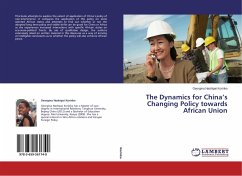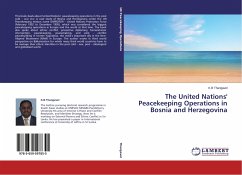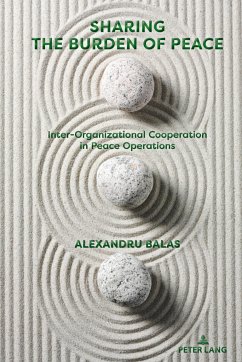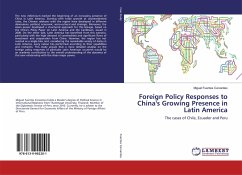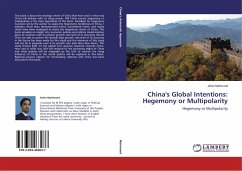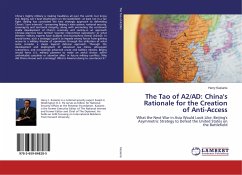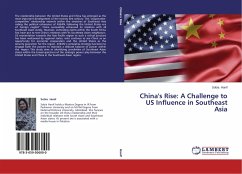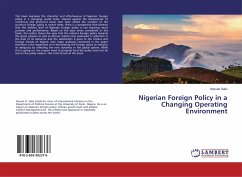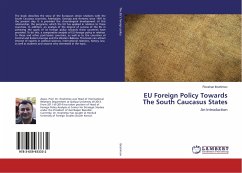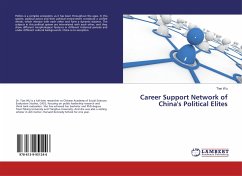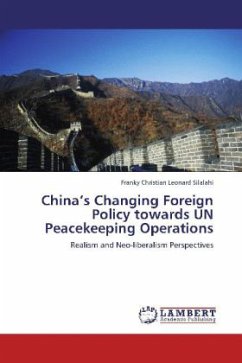
China's Changing Foreign Policy towards UN Peacekeeping Operations
Realism and Neo-liberalism Perspectives
Versandkostenfrei!
Versandfertig in 6-10 Tagen
32,99 €
inkl. MwSt.

PAYBACK Punkte
16 °P sammeln!
This book analyze China s changing foreign policy towards the United Nations Peacekeeping Operation (UNPKO). In 1950s, China rejected any forms of intervention towards internal affairs of one country. In 1949-1971, China even condemned the establishment of the UNPKO. But in the subsequent years, China not only participated in the decision making of UNPKO deployment in the Council, but also gave financial support to the UNPKO expenditure and sent its troops. In analysing this phenomenon, two main theories in international relations are applied: realism and neo-liberalism. Realism, with self-hel...
This book analyze China s changing foreign policy towards the United Nations Peacekeeping Operation (UNPKO). In 1950s, China rejected any forms of intervention towards internal affairs of one country. In 1949-1971, China even condemned the establishment of the UNPKO. But in the subsequent years, China not only participated in the decision making of UNPKO deployment in the Council, but also gave financial support to the UNPKO expenditure and sent its troops. In analysing this phenomenon, two main theories in international relations are applied: realism and neo-liberalism. Realism, with self-help concept, is incapable explaining the China s increasing cooperation with other countries. Post-Mao China s leaders considered the self-reliance policy is no longer beneficial which proves neo-liberalism assumption that it is in one country s need to cooperate. Nonetheless, realism prevails to show that China s cooperative approach is to increase its national power in order to balance the increasing power of others. Realists see this change as phenomena of "cooperate to compete".



